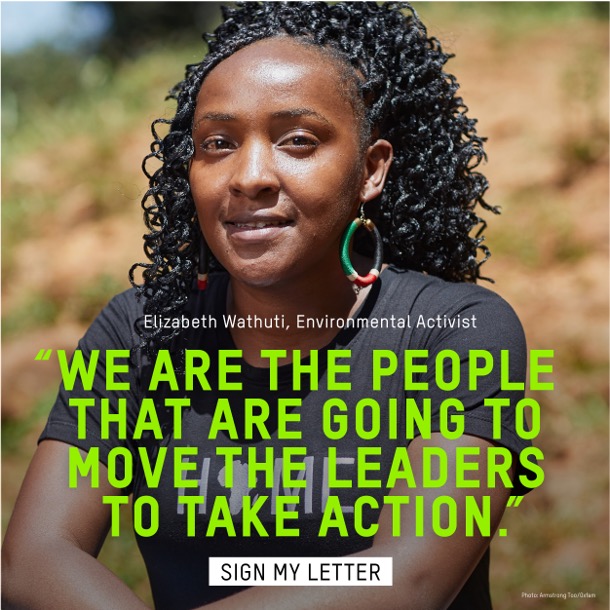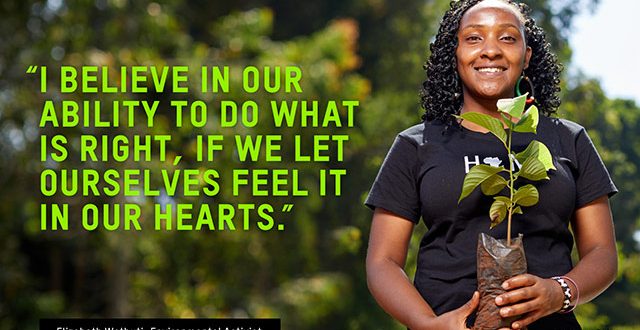FIRMA ANCHE TU PER LA GIUSTIZIA CLIMATICA, ORA
I negoziati intermedi di Bonn a giugno si sono rivelati deludenti per i dialoghi di Glasgow su perdite e danni sia dal punto di vista degli osservatori che di molti degli stessi Paesi partecipanti al negoziato. Dopo un susseguirsi di dichiarazioni impostate e prive di contributo politico (in particolare da parte dei Paesi ricchi), i delegati G77 più Cina hanno chiesto, avendo ormai tutti capito che i dialoghi non avrebbero portato a niente di concreto, di sorpassare uno strumento nato già debole e tornare invece al piano originale poi ammorbidito in conclusione di COP26: lanciare uno strumento finanziario vero e proprio sul tema delle perdite e danni già a COP27.
Qui l’articolo completo di approfondimento.
Le popolazioni meno responsabili della crisi climatica stanno subendo impatti che vanno ben oltre le loro possibilità di adattamento. Il mondo deve essere al fianco di queste comunità e aiutarle a mitigare almeno in parte il disastro con finanziamenti su perdite e danni, ora.
Per questo noi di Italian Climate Network vogliamo condividere e invitarvi a sottoscrivere la lettera aperta di Elizabeth Wathuti, attivista kenyota per il clima, che chiede giustizia per le popolazioni più fragili e meno responsabili del cambiamento climatico, ma che ne stanno soffrendo di più.
Siamo tutti coinvolti. Possiamo porre fine al mondo dei profitti, dello sfruttamento, della disuguaglianza, dell’inquinamento, della distruzione e della sofferenza legati ai combustibili fossili e costruire, al loro posto, un mondo migliore.
Se vogliamo garantire un futuro vivibile e un mondo migliore per tutti – un mondo di giustizia, salute, speranza e rispetto per la vita – dobbiamo agire per il clima in maniera solidale e far sì che il cambiamento avvenga, partendo da noi.
In Italia però possiamo fare di più, il periodo lo richiede. Con la caduta del governo Draghi e lo scioglimento anticipato delle Camere, l’Italia è entrata in una nuova fase di campagna elettorale in vista delle elezioni del Parlamento previste per il prossimo 25 settembre. Quasi nessuno parla del tema, spinoso e centrale, del Loss and Damage, ossia dei risarcimenti internazionali per le perdite e danni subiti dai paesi più fragili e meno responsabili degli sconvolgimenti climatici. Abbiamo quindi lanciato un form con il quale chiediamo a giovani italiane e italiani tra i 18 ed i 30 anni cosa pensino del tema, come lo porterebbero ai loro decisori politici locali, cosa vorrebbero che il prossimo governo facesse in aiuto alle popolazioni più fragili. Le risposte al form saranno raccolte e portate a decisori politici e candidati a partire dal mese di settembre, fino alle elezioni e, successivamente, al nuovo Governo. Vuoi darci una mano, vuoi dire la tua? Clicca qui per dirci cosa ne pensi.
Grazie!

UNISCITI A ME PER LA GIUSTIZIA CLIMATICA, ORA
Abbiamo bisogno di fiducia e solidarietà per risolvere collettivamente la crisi del clima e della natura che stiamo vivendo.
Le persone che hanno contribuito meno alla crisi climatica ne subiscono ora gli impatti peggiori. È una grave ingiustizia.
Chiedo ai leader di agire ora e di fornire alle comunità in prima linea l’aiuto di cui hanno bisogno, stanziando i finanziamenti necessari per fare fronte alle perdite e danni subiti.
Se sei d’accordo con le mie richieste, firma questa lettera e aggiungi la tua voce alla mia.
Elizabeth Wathuti
Kenya
Dear Minister Sharma and Minister Shoukry,
You are jointly responsible for guiding the UN climate change negotiations at what is a watershed moment in human history.
I urge you to meet this challenge with compassion and courageous leadership, which is what will be needed to keep the 1.5°C temperature goal of the Paris Agreement alive.
The loss and damage already being experienced by communities on the frontlines of the climate crisis is being cruelly compounded by the impacts of a war and global pandemic.
People who have contributed least to the climate crisis are right now suffering its worst impacts, and decency demands that finance be mobilised urgently through a loss and damage facility to help them.
This year I have been spending time understanding the lived experience of these frontline communities.
Recently, I visited Wajir County, which is about a day’s drive northeast of my home in Nairobi, Kenya.
What I witnessed there was a deeply shocking example of the suffering that the interconnected climate, nature and food crises are bringing to bear right now across the African continent.
Four consecutive failed rainy seasons have led to terrifying levels of food and water insecurity across the region.
I saw with my own eyes the terrible suffering that the community in Wajir is experiencing and the stories that local people had to share will never leave me.
Most people in Wajir depend on livestock for their livelihood, but thousands of their animals are now dropping dead of thirst and starvation.
Young girls are being pulled out of school because their families can no longer afford to pay school fees.
Babies are failing to thrive because their hungry mothers’ can’t produce enough milk to feed them.
Relentless drought has completely decimated local wildlife populations.
And natural ecosystems that should be a life source for all have been pushed beyond breaking point.
What hit me hardest, though, was to hear that some of the people I met feel hopeless about their situation – that only their faith now keeps them going as they pray to God for the rains to arrive.
Most of the people I met in Wajir do not know that decisions made in far away places might have something to do with the situation they are facing.
What would they do if they knew that the actions of others – rich, high-emitting nations in the global north – had something to do with their predicament?
Would they simply pray to God for the rains to come, or would they have something to say to world leaders and big companies who are increasing the likelihood and intensity of these kinds of disasters?
Communities on the frontline of the climate crisis, like the people I met in Wajir, are not responsible for causing the climate crisis – but they are suffering its impacts right now, well beyond what they can adapt to.
The global community must not simply abandon them to their fate.
Which is why it is critical that the COP27 climate change talks, to be held in Egypt later this year, deliver a dedicated finance facility to help frontline communities deal with the loss and damage they are already experiencing – and which we know will only get worse.
This is not just about money – because money can never replace what the people I met in Wajir have already lost.
This is about justice.
It is about building trust and solidarity.
This is what the global community needs if we are to solve the nature and climate crises together.
Yours sincerely
Elizabeth Wathuti
CHI È ELISABETH WATHUTI
Elizabeth Wathuti è un’attivista keniota per il clima e fondatrice di Green Generation Initiative. Si è rivolta ai leader mondiali in occasione dei negoziati sul clima delle Nazioni Unite nel novembre 2021, esortandoli ad “aprire i loro cuori” alla situazione delle comunità in prima linea nella crisi climatica e ad agire con la scala e la velocità necessarie per garantire giustizia climatica e un futuro vivibile.

